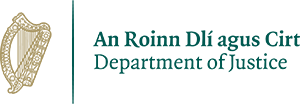A person who is seeking to be recognised as a Convention refugee under the Geneva Convention 1951.
The Atypical Working Scheme allows you to work in a position not covered by other employment rules. The purpose of the Scheme is to provide a streamlined mechanism to deal with atypical, short term employment or certain other employment situations which are not governed by the Employment Permits Acts or by current administrative procedures under the Employment Permits Acts.
BMU is the unit responsible for performing frontline immigration services at the border.
Written permission from the Minister for Justice to a non-EEA national to allow you to become established and engage in business in Ireland. Business permission usually lasts for one year initially.
A visa-required national will still need a visa as well as the business permission. If you hold a business permission, you will have residence Stamp 1 endorsed on your passport.
The type of visa that allows a visa-required national to come to Ireland for a maximum of 90 days (three months). It cannot be renewed and the holder must leave the State on or before the date the visa expires.
An Irish Residence Permit (IRP) card issued to all legally resident non-EEA nationals who stay in Ireland for more than three months. Possession of this certificate of registration verifies that the person has registered with their local immigration registration officer. It allows the card holder to travel freely from and return to the state.
The IRP card is a credit-card sized document. It includes the person’s photo, date of birth, the number of the relevant residence stamp (see below) and registration number. There are several different versions of the card, depending on the person’s status. There is a fee for the card of €300 (with exceptions).
A person who is recognised as being a refugee under the criteria set down in the 1951 Geneva Convention relating to the Status of Refugees, as implemented by legislation in Ireland.
A Convention refugee will get a residence Stamp 4 and will not need an employment permit or business permission to work in Ireland
The Critical Skills Employment Permit is for a restricted list of occupations in the annual salary range from €30,000 to €60,000 and for occupations in the annual salary range above €60,000. If you hold a Critical Skills Employment Permit you will have a residence Stamp 1 endorsed on your passport.
For immigration purposes a person may be considered the De Facto partner, opposite or same sex, of another person if they have a mutual commitment to a shared life to the exclusion of all others similar to a marriage or civil partnership in practice though not in law. The relationship between them should be genuine and continuing and they must live together or do not live separately and apart on a permanent basis and they are not related by family. This type of immigration permission is for people who have an Irish citizen or Irish resident life partner (the Sponsor) and would like to live with them in Ireland. For the purpose of making an application for a De Facto partner the relationship must be of at least two years duration. The permission is conditional on the relationship therefore if the relationship ends the permission ends.
A visa that allows a visa-required national to come to Ireland for more than 90 days (three months). The holder must register with the relevant immigration registration officer.
A citizen of one of the member states of the European Economic Area (EEA). The EEA is made up of the EU member states (see EU national below) together with Iceland, Liechtenstein and Norway. There are similar arrangements for Swiss nationals so the term EEA national is often used to cover EEA and Swiss nationals.
A residence stamp is not placed on the passport of an EEA national on arrival in Ireland.
A document that non-EEA nationals must have in order to be allowed to work in Ireland.
There are nine types of employment permit including General Employment Permit and Critical Skills Employment Permit. If you hold an employment permit, you will have a residence Stamp 1 endorsed on your passport.
A citizen of the European Union. The members of the EU are: Austria, Belgium, Bulgaria, Croatia, Cyprus, the Czech Republic, Denmark, Estonia, Finland, France, Germany, Greece, Hungary, Ireland, Italy, Latvia, Lithuania, Luxembourg, Malta, the Netherlands, Poland, Portugal, Romania, Slovakia, Slovenia, Spain, and Sweden. No residence stamp is placed on the passport of an EU national on arrival in Ireland. An EU national does not need an employment permit or business permission to work in Ireland.
The Garda National Immigration Bureau (GNIB) is responsible for all immigration-related Garda operations in the State.
A type of employment permit issued for occupations in the annual salary range from €30,000 to €60,000 and for a very few employments with annual salaries below €30,000. Some occupations are ineligible for employment permits and the employer must show that the relevant vacancy could not be filled from within the EEA or Switzerland. It lasts for two years and is renewable. If you hold a General Employment Permit you will have residence Stamp 1 on your passport.
Another name for the certificate of registration, now replaced by the Irish Residence Permit card (IRP).
Immigration officers are appointed under statute by the Minister for Justice. Their functions include interviewing those arriving in the State to establish whether they are foreign nationals, and if so, whether they have the correct documents and whether they should be given permission to land or be in the State. This permission generally takes the form of a stamp on the passport. It is usually known as a residence stamp or it may be a landing stamp only.
A member of the Department of Justice who is responsible for the registration of non-EEA nationals who stay in Ireland for more than 3 months. In the Republic of Ireland this function resides with the Burgh Quay Registration Office.
A member of the Department of Justice who is responsible for the registration of non-EEA nationals who stay in Ireland for more than three months.
In the Republic of Ireland this function resides with the Burgh Quay Registration Office.
Under the International Protection Act 2015, there are two forms of international protection, these are, refugee status and subsidiary protection. Prior to the International Protection Act 2015 applications were processed as provided for in the Refugee Act 1996.
The International Protection Appeals Tribunal was established in December 2016 in accordance with section 61 of the International Protection Act 2015. The Tribunal is a statutorily independent body and exercises a quasi-judicial function under the International Protection Act 2015.
The function of the International Protection Appeals Tribunal is to hear and determine appeals on decisions made by the International Protection Officer on applications for protection status in the State. The Tribunal also determines appeals under the International Dublin System Regulations.
The IRP card is a credit-card sized document. It includes the person’s photo, date of birth, the number of the relevant residence stamp (see below) and registration number. There is a €300 fee for the card but there may be exceptions to this.
The type of certificate of registration issued to a non-EEA national family member of an EU citizen who has lived in the State for five years. The card will record the fact that the family member’s permission to remain is residence stamp no. Stamp 4 EU-FAM. Even if the holder is a visa-required national, they will not need a re-entry visa when returning to Ireland after a stay abroad. Application form EU 3 is used to apply for a permanent residence card and there is no charge for this card.
A letter issued to an EU citizen who has lived in Ireland for five years or more. Application form EU 2 is used apply for this certificate and there is no charge or this certificate.
A non-EEA national dependant (or partner) of an EU citizen who is not a qualifying family member (see below). They have completed an application form EU1A and have been approved as a permitted family member by Immigration Service Delivery (ISD) under the European Communities (Free Movement of Persons) Regulations 2015. A permitted family member will get residence. Stamp 4 EU-FAM and will not need an employment permit or business permission to work in Ireland.
A person who has been invited to Ireland by the Government, usually in response to a humanitarian crisis and at the request of the United Nations High Commissioner for Refugees. In general, they have the same rights as Convention refugees.
A Programme refugee will have residence. Stamp 4 on their passport and will not need an employment permit or business permission to work in Ireland.
The non-EEA national spouse, civil partner or dependent relative of an EU citizen who has exercised the right to move to and live in Ireland under the European Communities (Free Movement of Persons) Regulations 2015.
A person who has been approved by Immigration Service Delivery (ISD) as a qualifying family member and has completed an application form EU1 will get a Stamp 4 EU-FAM and will not need an employment permit or business permission to work in Ireland. The certificate of registration will be 4 EU-FAM (which is the residence card of a family member of an EU citizen).
The primary business function of the Repatriation Division of Immigration Service Delivery (ISD) is to consider and make decisions on the cases of failed asylum seekers/ persons illegally present in the State who have been served with a notification of intention to deport, in accordance with the provisions of Section 3 of the Immigration Act, 1999 (as amended).
A type of certificate of registration that is issued to a non-EEA citizen who is a qualifying family member or permitted family member of an EU citizen under the European Communities (Free Movement of Persons) Regulations 2015. Form EU 1 or EU 1A is used to apply for this card and there is no charge for this card.
The type of certificate of registration issued to non-EEA national dependants of citizens of Iceland, Norway, Liechtenstein and Switzerland under the European Communities (Aliens) Regulations 1977 and the European Communities (Right of Residence for Non-Economically Active Persons) Regulations 1997.
Formerly issued to non-EEA dependants of citizens of all the EEA and Switzerland, it is no longer issued to non-EEA dependants of EU citizens, who qualify for residence cards.
The holder of a residence document will get residence 4 EU-FAM and will not need an employment permit or business permission to work in Ireland. EU 1 form is now used to apply for this as well and there is no charge for this document.
An Irish visa is a certificate stating that the foreign national identified in it is permitted by the Government to be present at the frontier of the State for the purpose of seeking permission to enter the State. A visa is valid only if affixed to a passport or travel document.
The granting of a visa is only a form of pre-clearance. A visa only permits a person to travel to the State during the validity period of the visa. The visa does not grant permission to enter or reside in the State. This permission is given by the immigration officer at the point of entry, who has the authority to grant or deny such admission. Applicants’ passports should be valid for at least six months after the intended date of departure from Ireland following visits.
A person who needs a visa if travelling to Ireland. The states whose nationals do not require a visa are listed in Schedule 1 of the current Visas Order. The list of states can change at any time and a new Order is issued in this case. EEA nationals do not require visas. There are about 60 other states listed in the Order, whose nationals do not require a visa.

